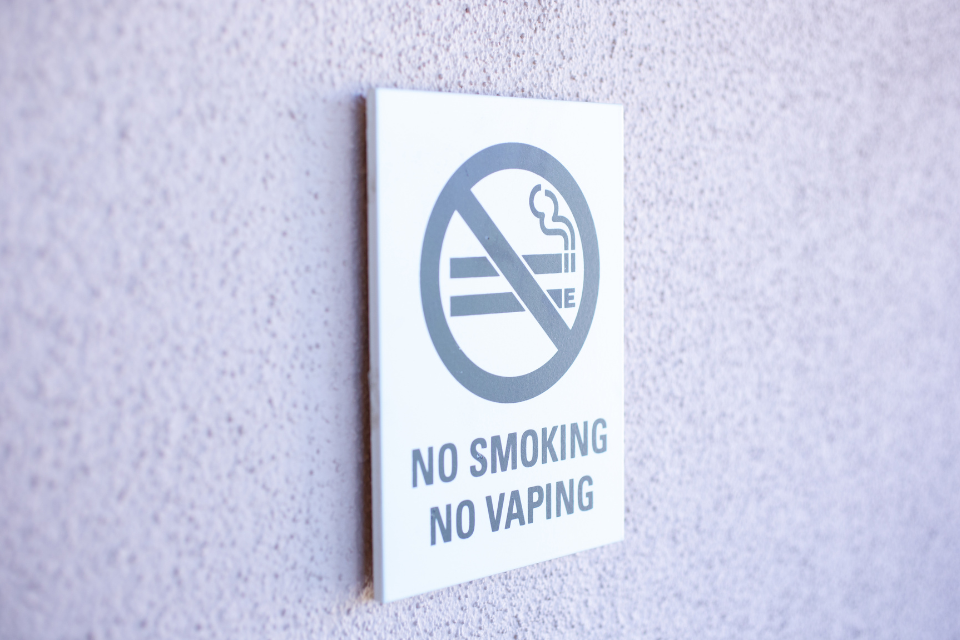Electronic cigarettes, commonly referred to as e-cigarettes or vapes, have gained popularity in recent years, with approximately 5.6 million adults and 2.5 million middle and high school students in the U.S. using them. While research suggests vaping is a less harmful alternative to smoking, e-cigarettes still carry significant health risks. Studies have shown that vaping can have negative effects on both our physical and mental health, increasing the chances of developing lung injuries, infections, and depression, among other concerns.
One challenge with assessing the risks of vaping is that it is relatively new. As a result, the long-term health impacts of e-cigarettes are not yet fully understood. This can make it hard to evaluate the risks of vaping for health conditions like pancreatitis. While research on this topic is limited, people with pancreatitis or at risk of developing chronic pancreatitis may wonder whether it is OK to use e-cigarettes. In this article, we’ll explore what we currently know about vaping and the effects it may have on the pancreas and pancreatitis patients.
Please note that this article specifically discusses e-cigarettes that contain nicotine or are nicotine-free, and does not pertain to those containing THC.
What is Pancreatitis?
Pancreatitis is inflammation of the pancreas, an essential organ that produces insulin and digestive enzymes. Acute pancreatitis occurs suddenly for reasons often unknown and usually resolves with proper management. Acute pancreatitis can become recurrent, otherwise known as recurrent acute pancreatitis (RAP). RAP is repeated episodes of acute pancreatitis that, in many cases, can progress to chronic pancreatitis. Unlike pancreatitis and recurrent acute pancreatitis, where the effects can be reversible, chronic pancreatitis involves irreversible scarring and damage to the pancreas, often causing pain and permanent loss of function. This damage typically leads to exocrine pancreatic insufficiency (not producing enough enzymes to digest food) and diabetes.
Typical symptoms of pancreatitis include severe abdominal pain, back pain, nausea, vomiting, weight loss, and diarrhea.
While there is currently no cure for pancreatitis, there is hope. The world’s top pancreatic experts believe a well-funded, coordinated research and development program could lead to effective treatments. Mission: Cure is working to make that happen.
Related: Cure Strategy
How Vaping Works
Vapes are electronic devices that use a battery and heating element to heat a liquid called “e-liquid,” also known as “e-juice” or “vape juice.” This liquid usually contains nicotine, flavoring, chemicals, and other ingredients. To activate most e-cigarettes, users inhale from a mouthpiece, which heats up the e-liquid and produces an aerosol that is breathed in. When exhaled, the resulting aerosol may resemble vapor. As vape juice is inhaled, it coats the lungs with potentially harmful chemicals. These chemicals are thought to cause damage, irritation, and inflammation.
Vaping and Pancreatitis
While there haven’t been long-term studies conducted specifically on the effects of vaping and its link to pancreatitis, studies have indicated that certain components of vaping, such as nicotine and chemical exposure, may be harmful to the pancreas and may damage the digestive system as well.
Does vaping cause pancreatitis?
Most vapes contain nicotine, which has been shown to increase the expression of proteins that contribute to pancreatitis and other pancreatic diseases. Nicotine, itself, is a risk factor for pancreatitis, as it leads to a loss in pancreatic enzyme secretion. When pancreatic enzyme secretion is lost, the body has a difficult time digesting food, which can lead to malnutrition and weight loss.
Testing done in laboratory animals has also shown that nicotine exposure can cause pancreatic injury. Nicotine has been shown to trigger certain signals in pancreatic cells, leading to high levels of calcium being released inside the cell. This, in turn, can damage the cell and cause it to die.
Related: Causes and Symptoms of Pancreatitis
Vaping, Inflammation, and Pancreatitis
Vaping may also cause harm to the digestive tract as a whole, not just in the pancreas. A research team from UC San Diego School of Medicine and Moores Cancer Center conducted a study that showed that chronic use of nicotine-free e-cigarettes can result in gut inflammation and a disruption of the gut barrier due to two chemicals – propylene glycol and vegetable glycerol – found in vape juice. Additionally, the study found that chronic exposure to e-cigarette use increases the risk of bacterial infection.
Is vaping bad for pancreatitis patients?
Due to the risks associated with nicotine, pancreatic enzyme loss, pancreatic injury, and inflammation, vaping is not recommended for pancreatitis patients. Instead, patients should consider alternative methods to manage nicotine cravings and discuss appropriate treatment options with their healthcare provider to minimize the risk of further harm to their pancreas.
Resources to Quit Vaping
Truth Initiative
Truth Initiative is a nonprofit public health organization committed to helping those struggling with tobacco use and nicotine addiction. The nonprofit offers a 24/7 support network that provides resources to overcome the challenges of quitting e-cigarette use.
Smokefree.gov
Smokefree.gov is a valuable resource that was developed by the National Cancer Institute to combat smoking rates. It provides a customizable plan to those looking to quit vaping, in addition to information, tools, and resources designed to support the quitting process.
Key Takeaways
We don’t have enough research yet to fully understand how vaping may lead to pancreatitis. However, studies on animals and research on nicotine’s impact on the pancreas provide some evidence that it could be harmful.
Vaping may contribute to pancreatitis and pancreatic injury by:
- Increasing the expression of proteins that contribute to pancreatitis and pancreatic diseases
- Leading to a loss in pancreatic enzyme secretion
- Potentially causing cell death, by activating high levels of calcium within cells
- Potentially causing disruption in the gut barrier and inflammation

